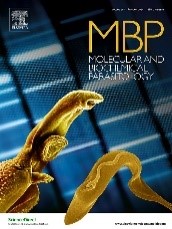Molecular Helminthology Laboratory
The Molecular Helminthology Laboratory at Cummings School of Veterinary Medicine at Tufts University is run by Dr. Patrick Skelly and Dr. Akram Da’dara. The laboratory exploits modern molecular biology tools to investigate the molecular and cell biology of blood flukes belonging to the genus Schistosoma. These parasitic worms infect more than 200 million people globally and cause the debilitating, neglected tropical disease schistosomiasis.

The World Health Organization estimates that hundreds of thousands of people die of schistosomiasis each year and about a billion people are at risk of infection. Schistosomes also infect livestock and cause serious economic hardship in many countries. Adult worms live in the host’s vascular system as male-female pairs. They can survive for many years during which time the female produces hundreds of eggs per day.
Most damage caused by schistosomes arises from the host’s immune response to parasite eggs within host tissues. For more information on schistosomes and schistosomiasis, please see our article in Scientific American and/or the Centers for Disease Control and Prevention CDC Schistosomiasis page.
Dr. Skelly is an editor for the journal Molecular and Biochemical Parasitology.
- Tufts Now Article: The Most Important Disease You’ve Never Heard Of
- Tufts Now Article: New Hope for a Neglected Disease
